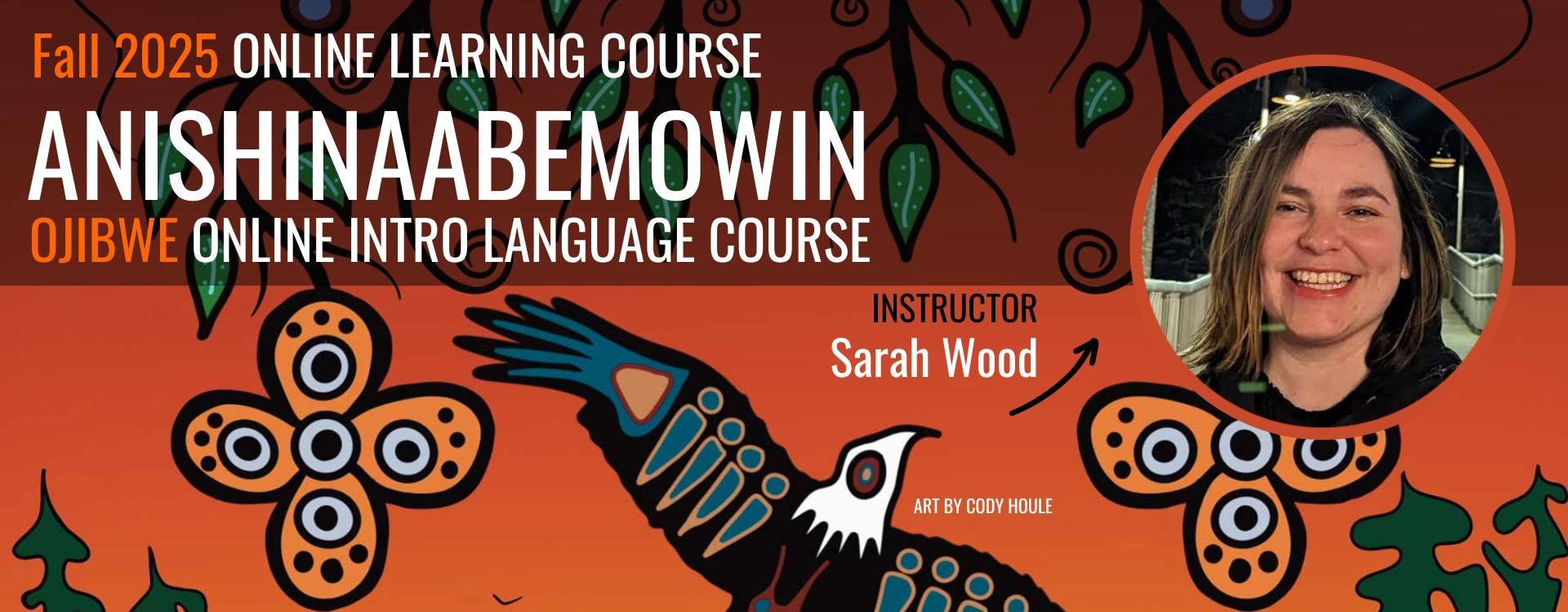

Or, if the timing works better for you, we’ve just opened registration for a Winter 2026 Anishinaabemowin (Ojibwe) Introductory Online Language Course which will be on Tuesdays @ 5pm Eastern Time from January 6 – March 3. Learn more & sign-up…
These courses are open to everyone – both Indigenous and non-Indigenous participants who wish to learn to uplift language revitalization. If you are a non-Indigenous language learner, we ask you to review these reflections on what it means to be a non-Indigenous learner in an Indigenous language learning course.
Sarah Wood is a member of Chippewas of Nawash Unceded First Nation and currently resides in Peterborough, ON, where she is completing her PhD in Indigenous Studies at Trent University. She has been learning Anishinaabemowin for 6 years. She is also a part-time faculty member at Brock University, Trent University and Biidwewdamowaad Nimkiig Biidaabang teaching Anishinaabemowin and an immersion facilitator and language teacher at Ninaatigoons Learning.
Your course fee goes towards supporting our charity in covering the course costs, including ensuring that we compensate the course instructors adequately, and that we can continue to offer learning opportunities like these. These are offered free of charge for Indigenous participants as an acknowledgement that one should not have to pay for something that was stolen.
Indigenous languages carry connections to lands, ancestors, traditions, and contain ecological knowledge crucial for sustainable living, medicinal practices, and traditional storytelling, enriching our collective wisdom. By supporting Indigenous language revitalization efforts, we not only preserve linguistic diversity but also uphold Indigenous Peoples’ fundamental rights to their languages and cultures.
Our intention being not to offer a second language program where participants achieve fluency, but rather to provide a spark—an introduction that inspires and encourages further engagement with the language and broader revitalization efforts. We aim to create a welcoming space where learners can begin their journey, build connections, and develop a foundation for future learning opportunities.
Non-Indigenous participants can take steps towards reconciliation by participating in language courses like these as a way to uplift language revitalization and deepen their own understanding of local place. We just ask that you review these reflections on what it means to be a non-Indigenous learner in an Indigenous language learning course.
We offer this language learning opportunity as a partnership between our charitable social enterprise and Natural Curiosity.
